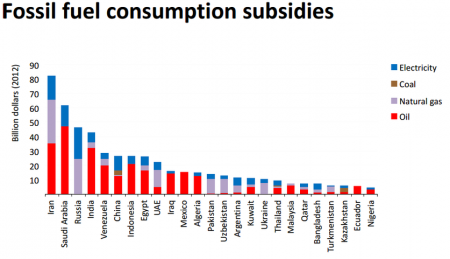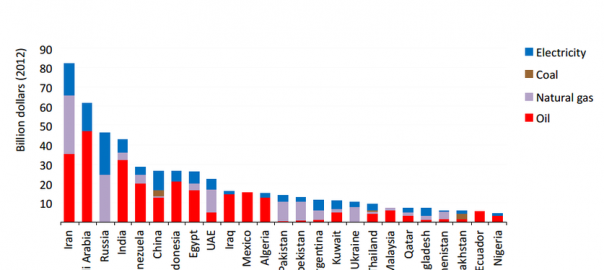In 2013, governments around the world spent $548 billion to subsidize the use of oil, gas, and coal. This practice drives economists absolutely nuts: they say it’s wasteful, eats up budgets, and leads to more pollution and global warming than would otherwise be the case.
Yet countries have long been reluctant to scrap these fossil-fuel subsidies. After all, if the government stops underwriting the cost of gasoline, prices will rise at the pump. That makes people upset — and can lead to protests or riots, as happened in Nigeria in 2012.
Lately, however, that’s started to change. The price of oil has been plunging, and gasoline is getting cheaper. And that’s made it less painful for nations that are trying to rein in bloated fossil-fuel subsidies. Back in July, Egypt began slashing billions in government energy subsidies. Indonesia has been doing the same. So has Ghana. India is now deregulating its diesel prices. Iran has been slowly hiking its artificially low gasoline prices.
It’s all starting to add up. In November 2014, the International Energy Agency (IEA) reported that 27 countries have been cutting back on fossil-fuel subsidies in some form or other. The agency no longer expects total subsidies to soar to $660 billion by 2020, as it once projected.

If these cuts continue, this could end up being a big deal: scaling back these subsidies is seen as one of the most straightforward ways to bolster the global economy and help address climate change.
Read More: Vox
